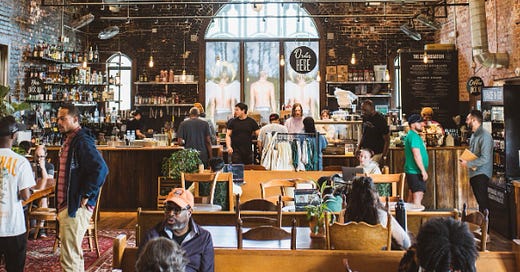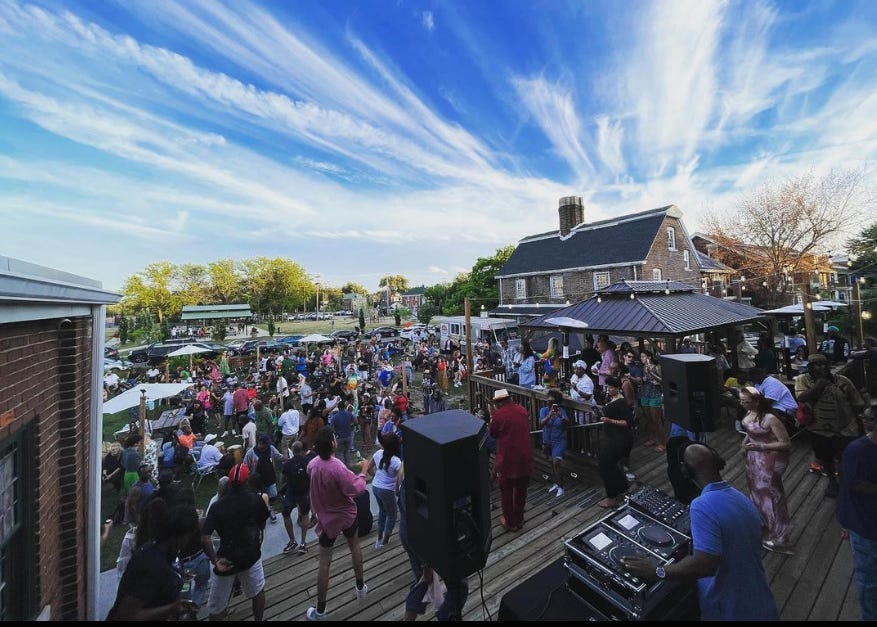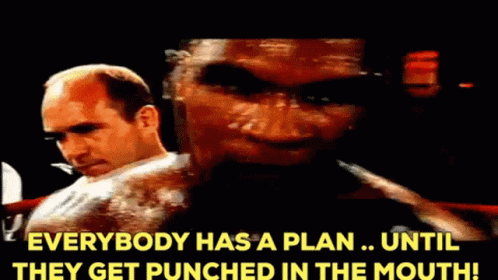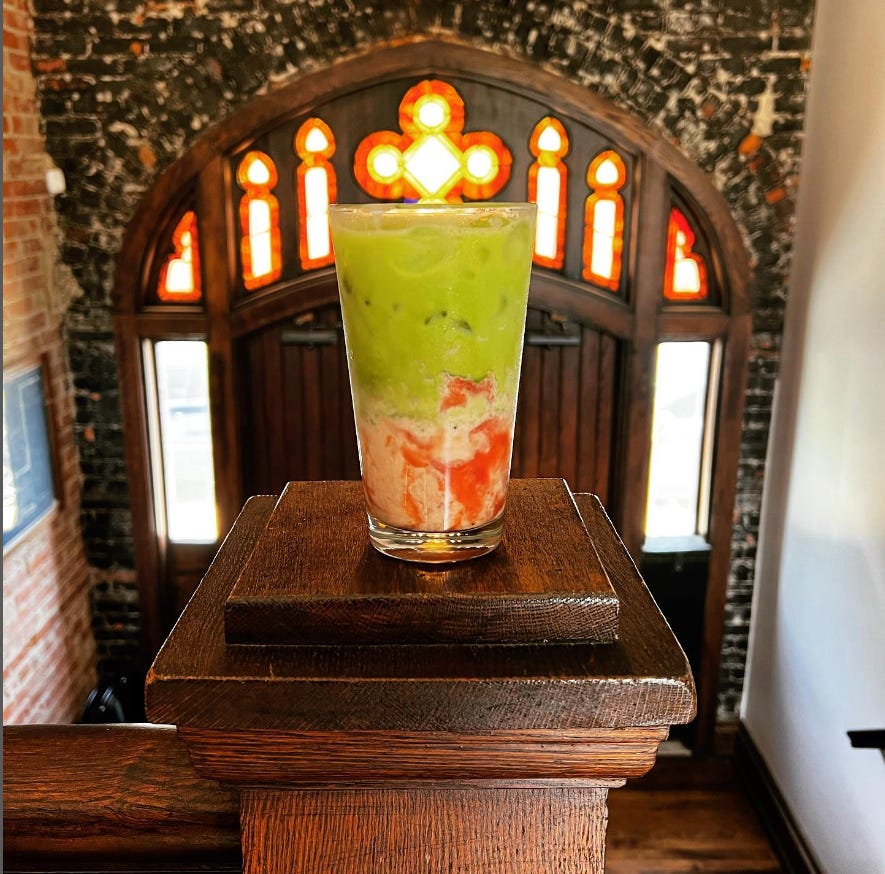Nothing Stops Detroit
What a historic church-turned-coffee shop tells us about the entrepreneurial spirit of cities
1 —
On a recent trip to Michigan, I got to meet Betsy Murdoch and Amy Peterson, the determined entrepreneurs of The Congregation, a neighborhood coffee shop and community space developed out of an abandoned church in Northwest Detroit.
This project was unique on three fronts:
the partnership roles of the operators;
the creative adaptive reuse of the structure; and
the happiness explosion clearly present in the beneficiaries of both.
It was a beautiful day for Michigan in October - surely one of the last sightings of the sun before it enters winter hibernation- and The Congregation was packed.
The patrons looked exclusively millennial. You could tell that this was their place.
In most coffee shops perhaps 75% of patrons have their ears plugged and nose in a laptop. But here, everyone was talking. Some sat at four tops, creating community and building things, me thinks; others sat face-to-face at two tops, deepening personal relationships.
Detroit is full of this spirit.
People are less work-obsessed than community-obsessed here. It’s not a city of workaholics. It is a work-hard-play-hard culture. Hussle lives here. Work and play were both present, but no one looked miserable. I am used to seeing unhappy people in coffee shops- likely a result of living next to a high-pressure, top-tier university - but here, there was a very high happiness quotient.
I give all the credit to the peacemakers. The peacemakers here had fostered a great place, and it radiates through the happiness of their patrons.
Any great business, particularly one that creates third places, is a gift.
Sure, the owners are on title, but this really feels like the community’s space. Conveyance is the clearest sign that a community is growing. It is passing things down. It is bettering its young. It is giving the next generation space.
If it happens through hearts, it doesn’t need to happen through the title, though one-day success will allow it to. When Betsy and Amy want to move on, I suspect the next owner will come from their current community. That’s the benefit of creating a place. That’s the benefit of building community. Legacy. And Continuity.
2 —
Companies are started by jackrabbits and run by tortoises. It is extremely rare to find both traits in one person. The Congregation is a partnership of the personality types, the entrepreneur visionary, and the operator executive, in this case, a match made in heaven. Amy, the jackrabbit, was really clear on who was who.
They gave an informal talk about third places, anchored by a film on the topic, and had a couple of points worthy of unpacking here:
1 Small businesses are weirdly pro-competition.
In discussion, I had told them “I just met you, but I know your type…” I was about to tell them what they already knew, something that was obvious to me but not to the others in the audience, “If three more coffee shops sprouted up on your currently unoccupied corners, you would be happy about it.”
You read that right. I said they’d be thrilled to have like-minded people build adjacent to them, even in their specific category of coffee. Amy wholeheartedly agreed. They’d love it.
Starbucks sure as hell wouldn’t. The corporate world is anti-competition, often going so far as to procure “category exclusivity” in their leases.
But the local wants to build an ecosystem. The owners believed the maxim that a rising tide raises all boats. If the corner of Rosa Parks Boulevard and Atkinson became a coffee haven, Amy would celebrate it. I bet she would collaborate with the other owners to develop complementary experiences and a breadth of services.
Maybe they’d even promote each other. Maybe they’d brand it “Coffee Corner”, and it’d be a thing. That’s the fundamental difference between small businesses and big businesses: Cooperation. And Collaboration.
2 Bureaucracies and corporations do not do innovation.
In fact, they hate it. Modern corporations regularly stifle innovation. That’s why it's so important to support our small businesses. They are often the exclusive source of newness in our communities. Without them, there would be nothing but Chipotles and maybe a Waffle House every 2 miles or so.
Amy underscored this. And she noted that the playing field is tilted. The banks don’t know how to turn a church into a coffee shop. The appraiser doesn't know how to find comparables for that (Of course they don’t. There are none.)
The system of finance and collateral isn’t built for this. There’s favorable financing for a Starbucks. But not for The Congregation. The entrepreneur is systematically shut out. They have to find another way.
3 “Everyone has a plan until they get punched in the mouth.”
The Congregation had a long winding road to open. Amy envisioned it, entitled it, and got the plans approved. Her husband built it, and then Betsy started to manage it.
They opened Mar 20, 2020, and were open a grand total of nine days before the world shut down for Covid.
Covid hurt everyone, but particularly third-place businesses. At each stage, the lead partner got punched in the mouth. I am certain of it. They suffered the #1 Rule of Mike Tyson Small Business Planning - “Everyone has a plan until they get punched in the mouth.”
3—
Entrepreneurship is a constant string of being punched in the mouth. Sometimes to get through the city’s disinterested staff, you have to rope a dope: take the punches to wear out your counterparty. You survive to live another day.
Amy said, “You never let one thing overwhelm you.” If she had let the permitting, planning, architecture, or financing overwhelm her, this special place would have never opened.
Entrepreneurs make decisions without full information, hundreds of times every day. For the non-entrepreneur, this feels crazy (it might be).
Those not bearing risk have a perpetual option to delay relevant decisions. If there is no cost - what’s the rush? Coffee shop owners have no such luxury. Staff positions must be filled, events are scheduled. The toilet is clogged. The show must go on.
I’ve always admired coffee shop owners for the minuteness of the decisions they have to make. When I was doing client work, I had to figure out how to make income on a $100,000 remodel. Betsy has to figure out how to make money on a frappuccino. It hurts my brain to think at that scale. But that’s the scale they operate at.
Every frappuccino is a show. Every time a butt sits on one of their couches, it’s a show. Whenever they host “Hustle Dance Night”, it’s a show. The show requires a stamina uncommon to humans. Third places are great for this reason. They are the specific result of such uncommonness.







